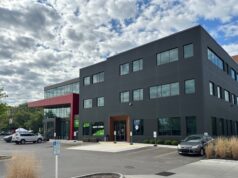Hunger and food insecurity affects one out of every five children in Wisconsin. In Dane County, one in five White households and one in three Latino, African American and single-parent households experiences food insecurity.
When a household experiences food insecurity, people are unsure of where their next meal is coming from, or worry about running out of food without having money to buy more. As a result, they often cut back on the size of meals or skip meals.
Hunger & Food Security in Wisconsin & Dane County, a report released today by Public Health Madison & Dane County (PHMDC), describes the scale of the problem in Dane County, details some of its health consequences, and provides a model for action to increase community food security.
“Food insecurity is a significant public health issue in our county,” says Nick Heckman, Food Security Policy Analyst at PHMDC. “Hunger can decrease a child’s ability to focus and perform in school. Food insecurity can also increase risk for other health problems, including diabetes and obesity because high-calorie, processed, and nutrition-deficient foods are all that many in our community can access or afford.”
The combination of low wages, along with housing and childcare costs, means many families simply do not have enough income to keep food on the table. Other factors also contribute to food insecurity in Dane County, including limited access to stores with healthy food options. Instead, there is ample access to cheap, low-nutrient, calorie-dense foods and sugar-sweetened beverages.
To address the issue, PHMDC is supporting partnerships to boost community food security. “The report highlights the prevalence and problems associated with food insecurity, but the real work happens in the community when people come together to make our food system more responsive to the people using it,” says Heckman, “We’re strategically supporting several exciting community initiatives to reduce food insecurity in Madison and Dane County.”
Free Summer Meal Sites
According to the Madison Metropolitan School District, 55% of the district’s 25,000 students qualify for free or reduced-price meals. In summer, when school is out of session, food insecurity rises for many households because children are not fed at school. To combat hunger, the MMSD Summer Food Program, will provide free summer meals to all children 18 and under at over 40 sites city wide, beginning on Monday, June 20. The effort is a result of a partnership between REAP Food Group, Madison Metropolitan School District, the City of Madison, Madison Parks, Midvale Baptist Church, and PHMDC.
Food Access in North Madison
When the Willy St. Co-op North opens later this summer at the corner of Northport Drive and North Sherman Avenue, it will be the first Willy Street Co-op location to accept WIC benefits. WIC is the federally-funded Supplemental Nutrition Assistance Program for Women, Infants, and Children, which serves low-income pregnant women and women with young families. More than 5,000 clients visit PHMDC WIC clinics each month. Over half of these clients are food insecure, and an additional 20% have very low food security.
Ensuring that people using WIC can use their benefits at the north side store makes it easier for them to obtain nutritious foods. Willy Street Co-op will continue to explore ways to make all Willy Street Co-op locations more accessible to all low-income customers.
Double Dollars at Farmers Markets
In 2016, PHMDC, alongside the City of Madison, UW-Extension Dane County, and Community Action Coalition, is contributing toward the expansion of the Double Dollars incentive program. Customers who redeem their FoodShare benefits (also known as SNAP or the Quest card) at an electronic benefits transfer (EBT) machine at participating markets will be have their benefit doubled up to a certain amount.










